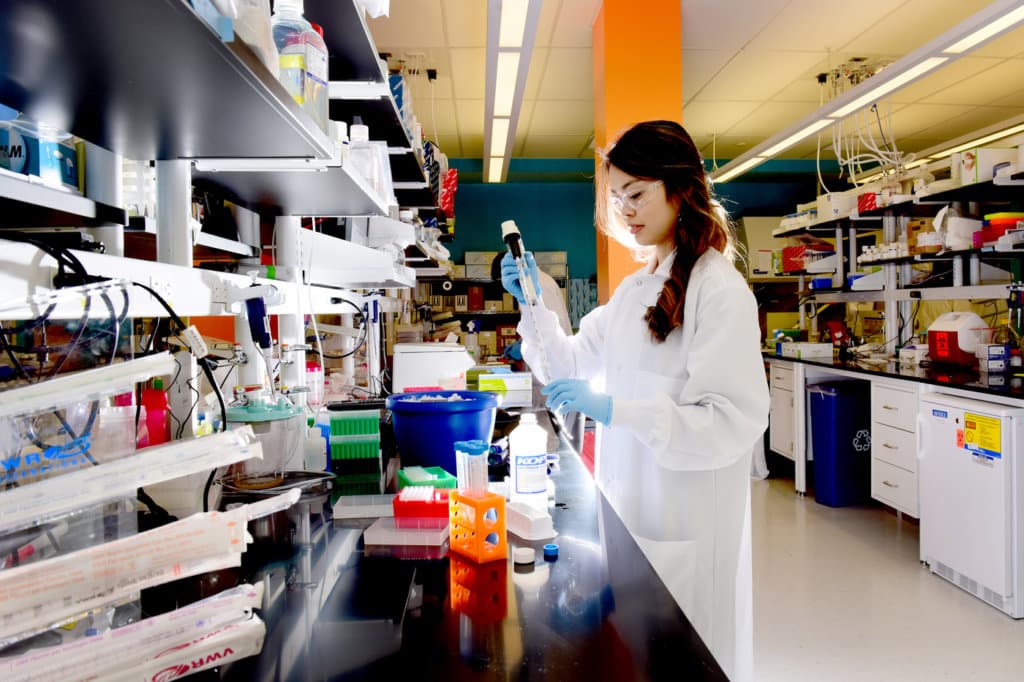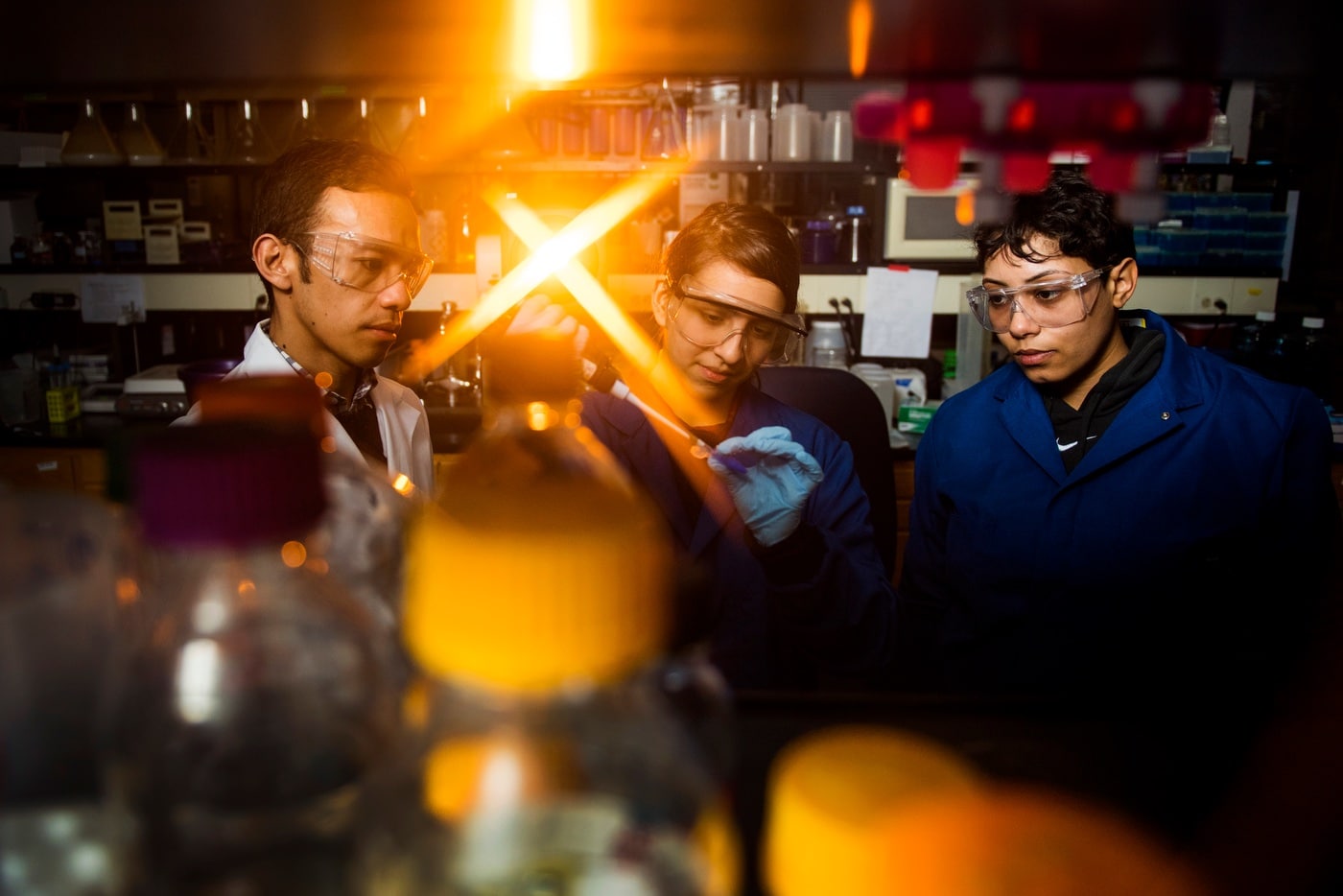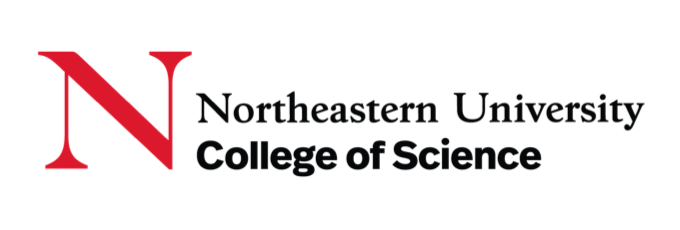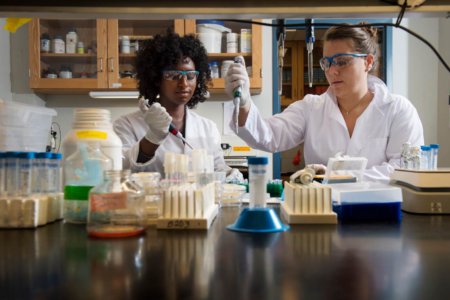When Lexie DeMarco began sourcing the perfect doctoral program to advance her love for physics, she didn’t have to look too hard. As conducting quality research was her top priority, attending Northeastern University — a top-tier R1 institution — made perfect sense. Here, she would be able to relish advanced department curricula, participate in ground-breaking research opportunities and develop in-demand career skills — all while enjoying an empowering, innovative approach to PhD training.
The collective experience is made possible by the College of Science’s new Connected Science Community PhD programs, each of which was designed to breathe life into the classic doctoral experience while helping tomorrow’s science professionals lay a solid foundation. By joining a supportive community of peers that promotes connections across scientific communities, DeMarco was able to familiarize herself with university life before officially starting her physics classes.
“I met a physics student in the program over the semester, and having known someone before coming into school has helped me feel more supported to ask questions,” she says. “I also had the opportunity to speak with a potential advisor and start a test project.”
Such interactions have already inspired DeMarco to pursue a career in academia once she graduates. The student feels she’s on track to develop the core skills to do so. “Since coming to Northeastern, I believe I have become more organized due to the responsibility and time management needed to be successful within a PhD program,” she explains.
The Connected Science Community PhD programs were conceptualized specifically to nurture this level of confidence. They aim to foster community, diversity, and collaboration across departments while exposing students to professional development and the array of career paths their newfound expertise can unlock — unlike the very first PhD programs that were granted in the 12th century and their teaching methods, which have persisted since.
By proving a PhD does not have to be a hugely challenging, lonely road, the College of Science’s new programs are training a new generation of researchers as part of a community — all of whom will contribute ground-breaking research findings in cross-disciplinary ways.
Professor Carla Mattos looks to the past to anticipate the future. “When I was a graduate student, I circulated strictly within the academic world,” she explains. “Research and industry, from my perspective, lived in separate spheres, and there was a sense that getting a job at a research-focused university was viewed as the ultimate success. The world has changed drastically in the last 30 years. The lines have blurred as a collaboration between academics and industry has become essential for making progress in solving the world’s most pressing problems. At Northeastern, students will of course be exposed to the academic setting, but also have exposure and experience in Industry and other sectors, empowered to make the most informed career choice.”

Source: Northeastern University
To ensure her students are able to do so, Professor Mattos and her team emphasize the importance of opportunities. Hence, their students engage in highly relevant and often multidisciplinary research in state-of-the-art laboratories. Candidates are also welcome to explore the industry during their studies — anything is possible at a university that has offered cooperative education for over 100 years and ranks first in internships/co-ops, according to the US News and World Report. Of course, no one is expected to navigate professional life alone.
“Thus, our new program offers career planning, exposure to the industry, and activities to foster an understanding of research that students from different departments are doing,” explains Professor Mattos.
“This gives each student a wider and more diverse perspective of their own work and helps to generate new ideas, creative thinking, and a better understanding of the complex environments and demands of science today. This broader perspective will promote the inclusiveness of diverse thoughts and diverse individuals critical for fostering creative problem-solving.”
Every student who joins the program begins their journey to interdisciplinary scientific success in the summer to ensure they will be able to forge meaningful connections through workshops, discussion groups, and seminars hosted by industry leaders. In the fall, they kick off their studies in their respective departments with knowledge of the work being conducted throughout the College of Science.
Such awareness increases the chances of students encountering synergy in current projects while developing ideas for new ones. Throughout the program, students will continue their research while sustaining their Connected Science Community through seminars, workshops, and social activities.
All scientific aspirations are welcome to broaden their horizons on their way to achieving optimum career flexibility. The Connected Science Community PhD Program offers specializations in Mathematics, Biology, Chemistry, Industry-Entry Chemistry, Psychology, Physics, as well as Marine and Environmental Sciences.
Follow Northeastern University on Facebook, Instagram, Twitter, YouTube, and LinkedIn.













